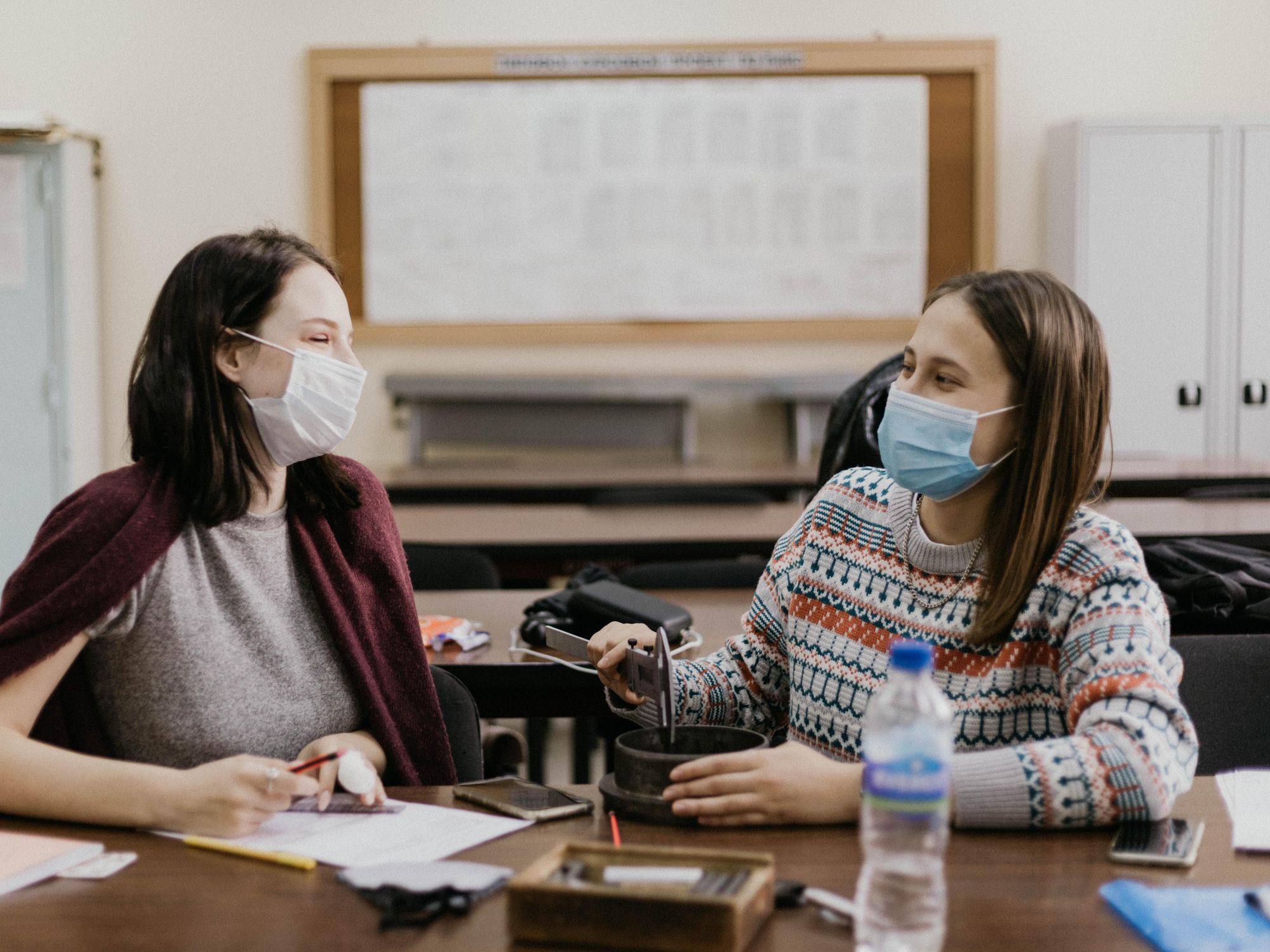UCLA's $10 Test Is Helping SoCal Schools Monitor Viruses as They Reopen
Keerthi Vedantam is a bioscience reporter at dot.LA. She cut her teeth covering everything from cloud computing to 5G in San Francisco and Seattle. Before she covered tech, Keerthi reported on tribal lands and congressional policy in Washington, D.C. Connect with her on Twitter, Clubhouse (@keerthivedantam) or Signal at 408-470-0776.

Several Southern California schools and universities will be testing every student and employee returning to the classroom for COVID-19 and other viruses in an attempt to thwart an outbreak.
The effort is being led by SwabSeq, the UCLA-based sequencing platform that released an FDA-approved COVID-19 test last fall. Its goal is to avoid the mad scramble schools and public health officials went through at the beginning of the pandemic trying to find and isolate cases with very little infrastructure.
The plans come as the Biden administration pumps $10 billion into testing in preparation for a mass reopening of schools.
It's a stark shift in the way school officials handle viral illness — simply sending people home for a few days until they get better. But experts say as the country tries to rein in the coronavirus health officials will need to quickly distinguish between the deadly disease and other viral infections.
"We think that'll be really useful moving forward because we'll want to know, with flu season, what are people infected with? Is it the flu or is it COVID?" said Dr. Eleazar Eskin, the UCLA chair of the Department of Computational Medicine and one of the scientists behind SwabSeq.
The Center for Disease Control and Prevention is expected to soon release updated guidance on testing to identify and track asymptomatic transmission of COVID.
SwabSeq's technology, which can process samples and return results within 24 hours, can be repurposed for viruses beyond the novel coronavirus, and by fall will be able to test teachers and students for all kinds of respiratory viruses, like the common flu.
Other COVID test manufactures are expected to come online soon as the Food and Drug Administration makes it easier for developers to seek emergency authorization on over-the-counter and at home COVID tests.
But Eskin said what distinguishes SwabSeq is its ability to test multiple respiratory viruses at a cost of $10 per test.
The platform has partnered with the University of California, Santa Barbara, Pepperdine and Caltech, along with some schools, to test people on a weekly or biweekly basis. It has begun sending tubes and funnels for saliva tests to the schools.
Already, it has processed nearly 100,000 coronavirus tests and is working with the California Department of Public Health to sequence positive samples for variants. Most of those are on UCLA's own campus.
"We're just thinking of, 'what do we wish we had in place in March of 2020 that could've made the outcome different with COVID-19?'" Eskin said. "And we want this project to basically put that technology infrastructure in place so that that doesn't happen again."
SwabSeq is leveraging two decades of genomic sequencing technology to test for coronavirus variants and other respiratory viruses, like the ever-changing flu that prompts a yearly vaccine. Researchers will sequence these genomes to map out what strains are whipping through the community by fall.
Mapping the genome sequence of virus variants early is the first step towards understanding how deadly or transmissive certain variants are, and seeing how effective vaccines will be in containing them.
"What those sequences do is they allow us to monitor those changes and see: how has it affected the behavior of the virus? Does it make it easier to spread? Does it make it more deadly?" said Dr. Timothy Brewer, an epidemiology professor at UCLA. "And where we really care about the changes is, do they affect the response of the immune system or the efficacy of the vaccine?"
Indeed, the World Health Organization said there were 13 different strains of the coronavirus in Wuhan, China even before cases popped up across the globe. And new strains that have emerged from Brazil and the U.K. have the ability to spread faster and evade vaccines.
The flu season at its peak killed 80,000 Americans in 2018, but was especially mild last year thanks to masks, hand washing and social distancing.
SwabSeq offers a COVID-19 test billed as the sweet spot between rapid antigen tests (which have high inaccuracy rates), and the more reliable polymerase chain reaction tests, which often take longer. Antigen tests look for proteins while the PCR tests for molecules but often need to extract RNA.
SwabSeq analyzes saliva samples without having to extract RNA, which allows the company to give accurate results quicker in a matter of 24 hours.
The test costs $20 right now, but Eskin says, with scale, SwabSeq could get it down to $10, making it useful and accessible for schools, especially as children are hotbeds for viruses and other bugs that spread around the classroom. Its COVID-19 test has already been administered to nearly 100,000.
"What we want to eventually do is set it up so the SwabSeq lab will be able to identify all the samples we get, we'll figure out what virus they're infected with and then also sequence the virus," Eskin said. "Kind of what we wish we had in place a year ago, because then we would have had a much clearer idea of what we're dealing with."
- UCLA Gets FDA Approval for New COVID-19 Test - dot.LA ›
- LA County Distributes Testing Resources as Omicron Grows - dot.LA ›
Keerthi Vedantam is a bioscience reporter at dot.LA. She cut her teeth covering everything from cloud computing to 5G in San Francisco and Seattle. Before she covered tech, Keerthi reported on tribal lands and congressional policy in Washington, D.C. Connect with her on Twitter, Clubhouse (@keerthivedantam) or Signal at 408-470-0776.



 Image Source: Revel
Image Source: Revel
